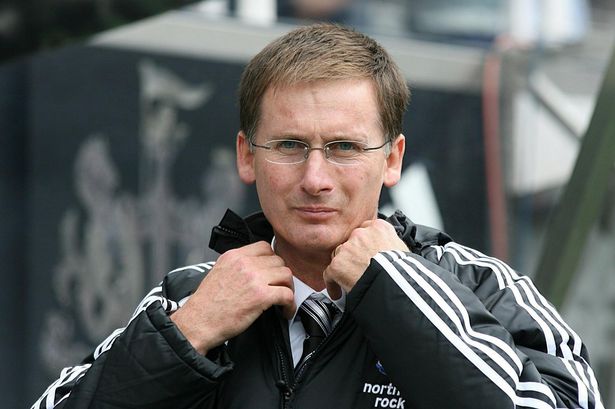Former West Ham and Newcastle manager Glenn Roeder sadly passed away on the 28th of February, aged 65, following a long-term battle with a brain tumour.
In his managerial career, he also had spells at Gillingham and Norwich City, while also spending time as an England coach under Glenn Hoddle.
Roeder also enjoyed a twenty-year playing career, making over 200 appearances for Newcastle, and playing at the likes of QPR, Leyton Orient and Watford, to name a few.
The tributes paid since the news of his death broke highlight just how respected Roeder was within the footballing world. Howard Wilkinson, chairman of the League Managers Association, said:
“Football has lost a great servant, our sincere condolences go to Glenn’s family and friends.” Current West Ham boss David Moyes paid tribute, saying: “Glenn was a true gentleman and demonstrated a lifelong dedication to the game we love, including a two-
year spell as manager of this great football club.”
Local Lad
Growing up, Roeder certainly had connections to the East London area. He was born in Woodford, and as a young boy he was reportedly a West Ham United supporter. In his playing days, he made a name for himself as a ball-playing centre back.
Roeder was an early example of a footballer who gained recognition for his use of the step over. This skill gained the nickname the Roeder shuffle. As a school boy he spent time at Arsenal before joining Leyton Orient aged 17.
Roeder went on to spend five years with the O’s, and was a part of the Orient team which reached the FA Cup semi-final in 1978. The East London outfit paid tribute to their former defender on their club website, extending their thoughts to Roeder’s family and friends “during a terribly tough period”.
After a solitary season at Burnley as assistant manager to Chris Waddle, and a short period under Glenn Hoddle as part of the England coaching staff, it was Harry Redknapp who offered Roeder a return to club football at West Ham United.
A Hammer Through and Through
Initially appointed as a coach, Roeder eventually became manager of the club in 2001 after Redknapp had departed. Despite opposition from some supporters to his appointment at the time, Roeder’s first season in charge of the club was a big success, guiding the Hammers to a seventh placed league finish.
West Ham’s 01/02 side was an exciting team led by the likes of Paolo Di Canio, Freddy Kanoute and Trevor Sinclair. Roeder’s coaching credentials were highly regarded. In his time at West Ham, he helped develop a young Michael Carrick, Jermain Defoe, Joe Cole and Glen Johnson, all of whom went on to enjoy great careers at club and international level.
Following a successful debut season, the 02/03 season, Roeder’s second season in charge was not quite so positive for the Hammers. Despite boasting a youthful squad containing current/future internationals like Michael Carrick, David James and Joe Cole, West Ham’s 10-year stint in the top flight came to an end as they finished in 18th place and they were relegated to the First Division.
This season was also a turning point in Roeder’s life, after collapsing in his office he was rushed to hospital, where scans later revealed he had a blocked blood vessel in his brain and he was subsequently diagnosed with a brain tumour at the age of 47.
With Roeder falling seriously ill, Trevor Brooking took over for the final three games and despite the team’s best efforts West Ham were relegated with 42 points. To credit Roeder’s determination and spirit, he returned to work by July stating he had ‘unfinished business’ but sadly he only managed three games of the new season.
Touching Tributes
Despite the disappointments of the 2002/2003 season, thanks to the medical care he received, Roeder was able to enjoy the next eighteen years of his life. He managed Newcastle United and Norwich City in this time and also undertook various advisory roles. His daughter Holly recently said in a post on Twitter:
“Our special Dad went through so much in the past 18 years after being diagnosed with a brain tumour, in his memory he would be so thrilled to be raising money to help the research to find a cure.”
A crowdfunding page has since been set up in memory of Roeder, it details his long-term battle with the illness. Currently, over £7,700 has been raised.
With Football coming together to send its condolences to Glenn Roeder’s family, many of his tributes point towards his kind, caring and genuine nature.
Clearly, he will be fondly remembered for his character and personality, his excellent career on the pitch and a good career on the touchline as a coach. Now, with his family raising money which will all be donated to The Brain Tumour Charity, Roeder’s legacy can extend far beyond the pitch and help save lives in the future.
Feature image Credit: PA




